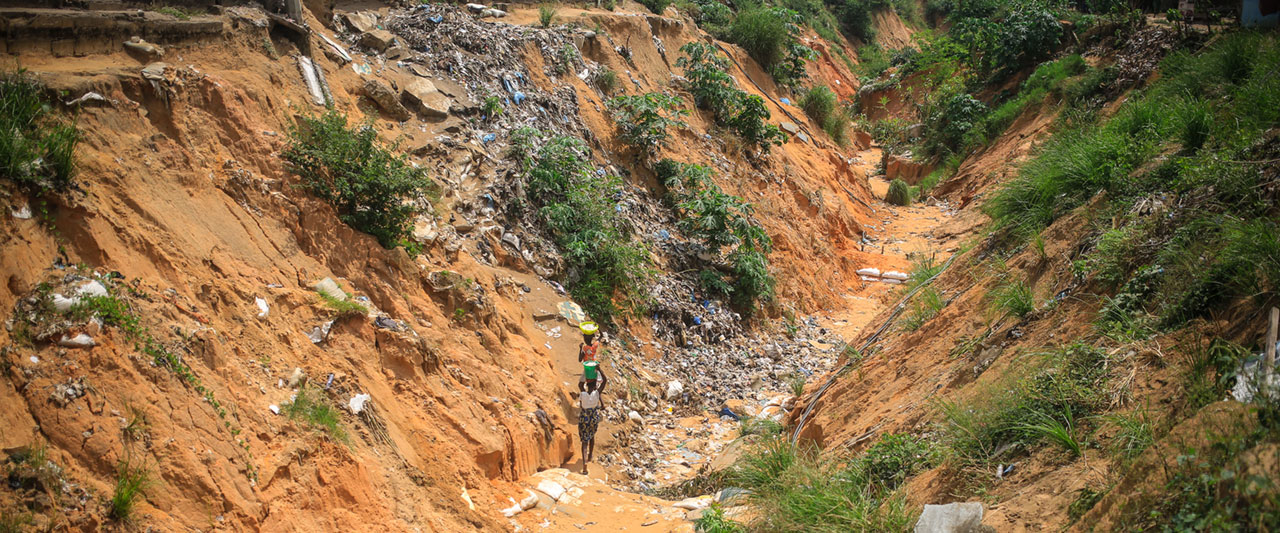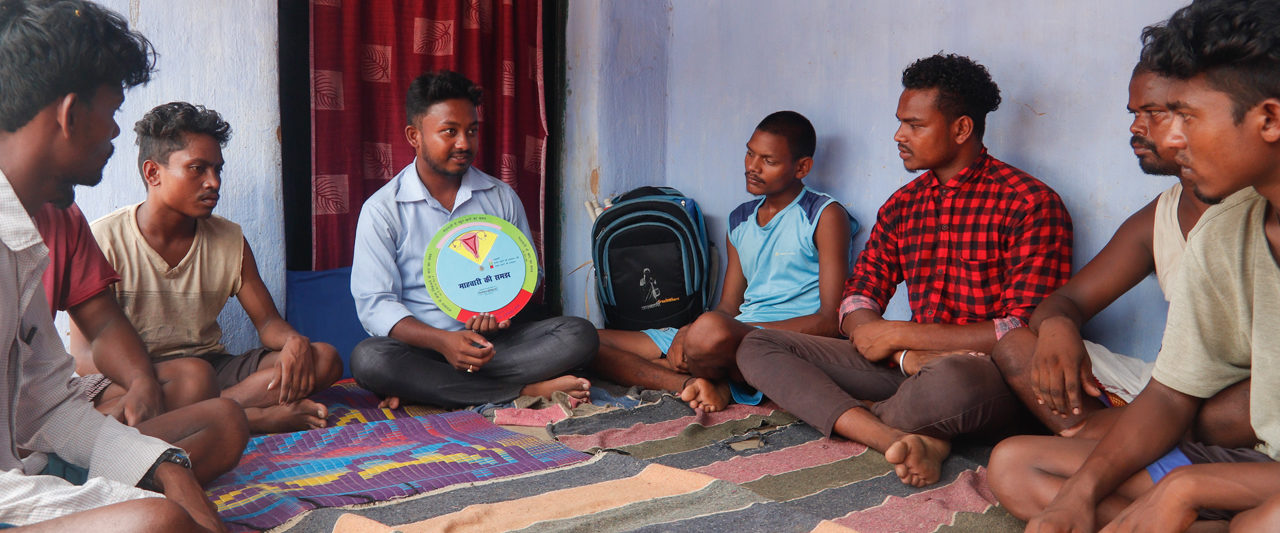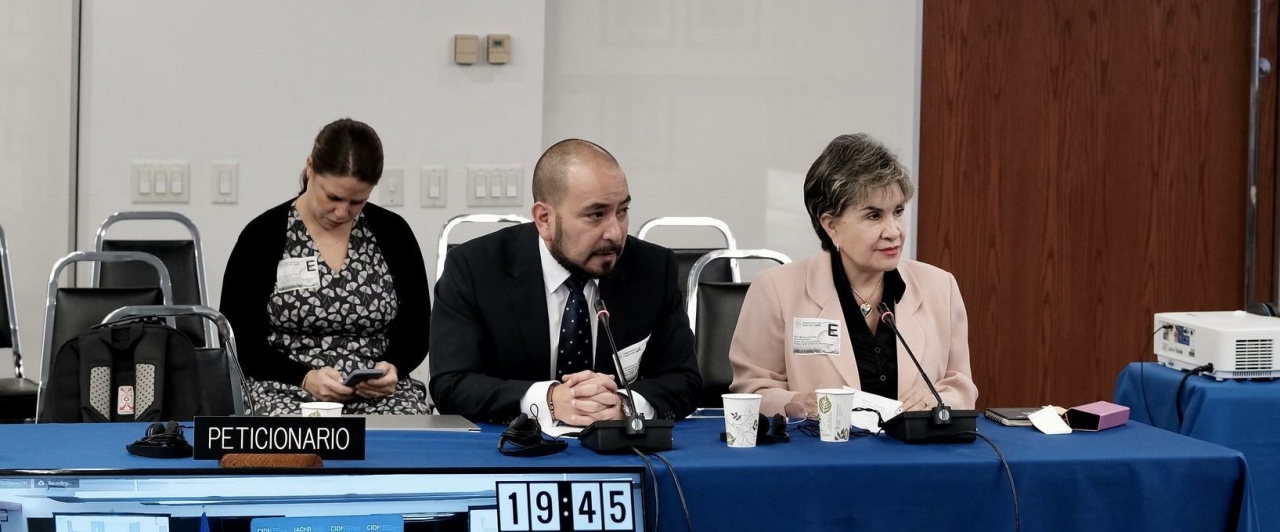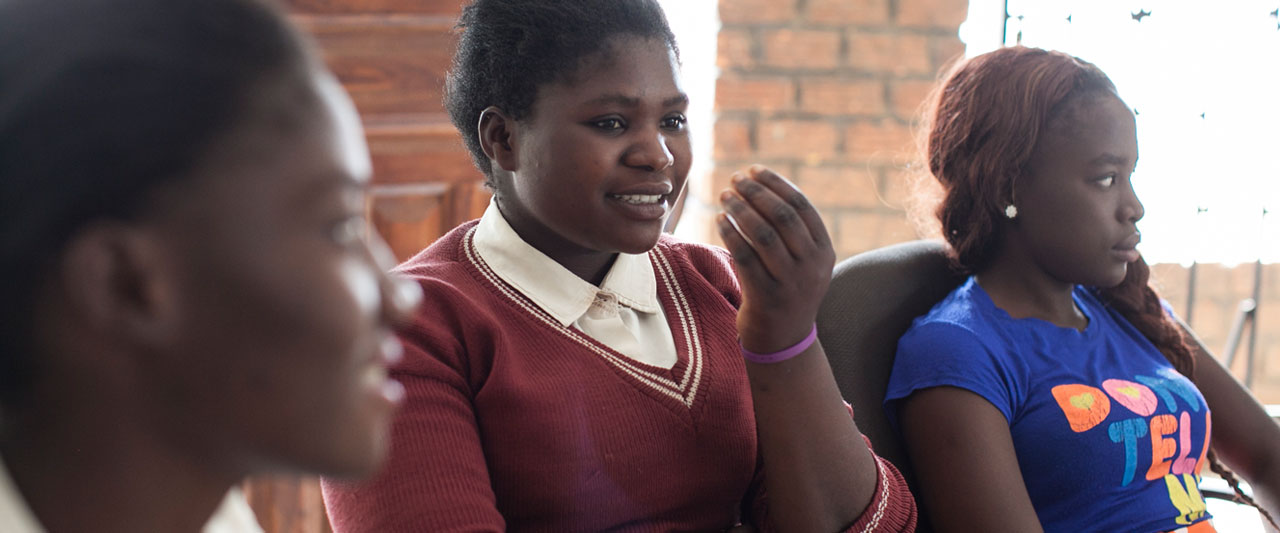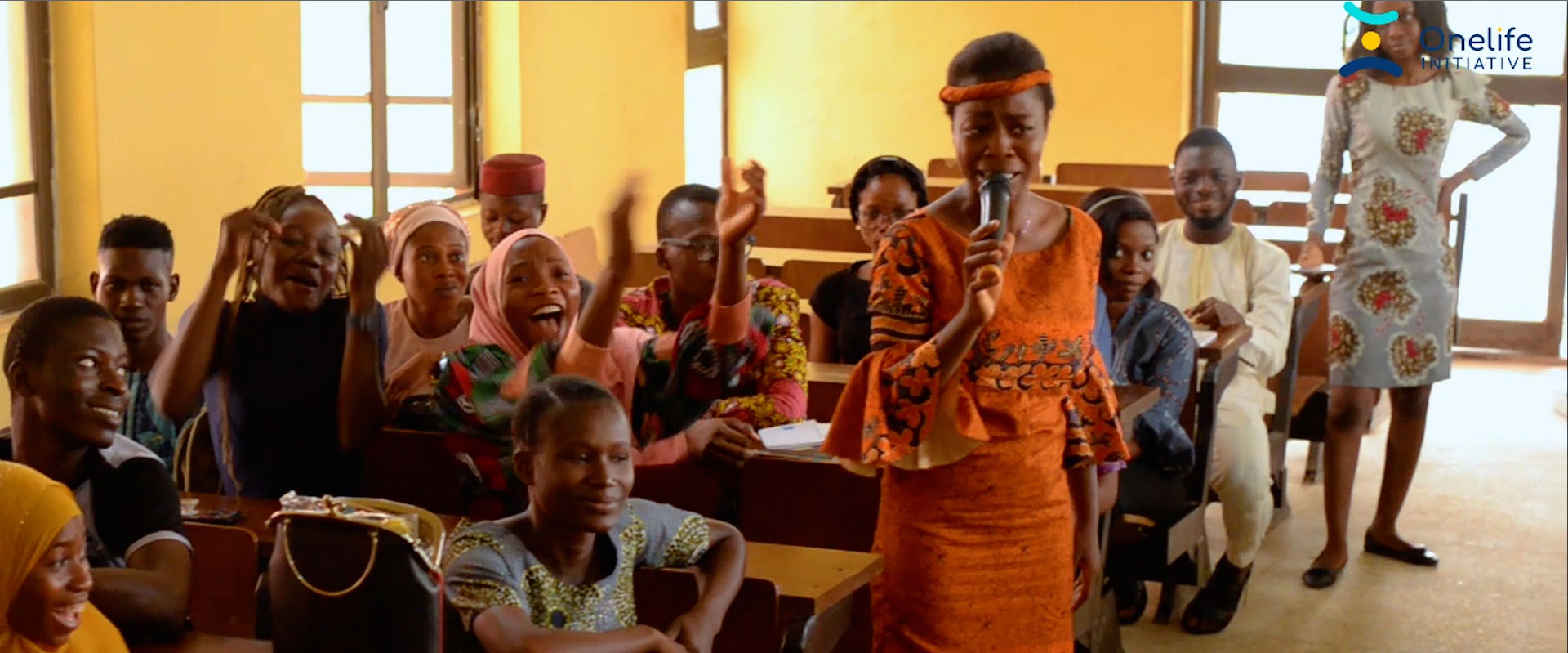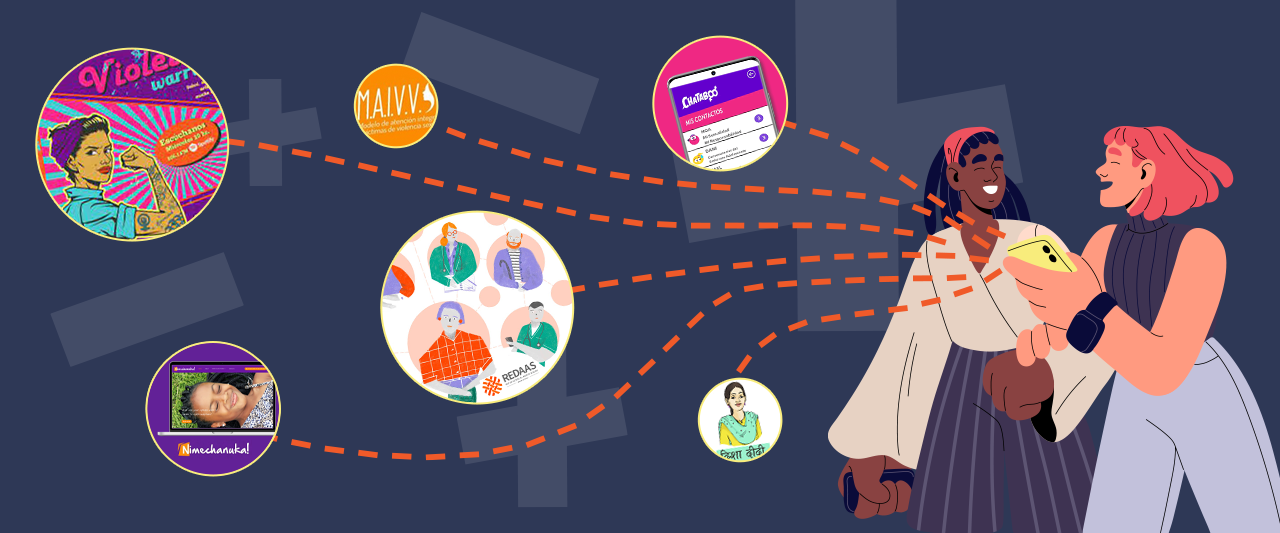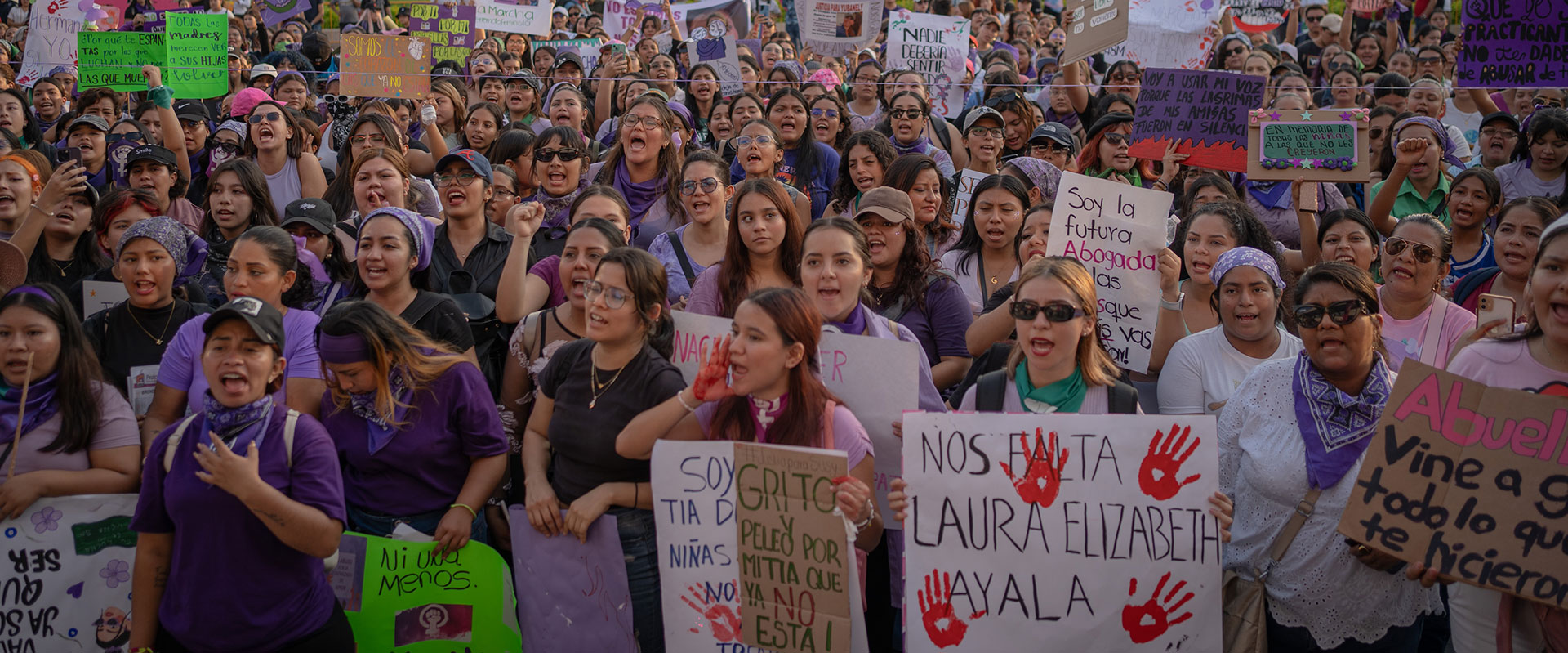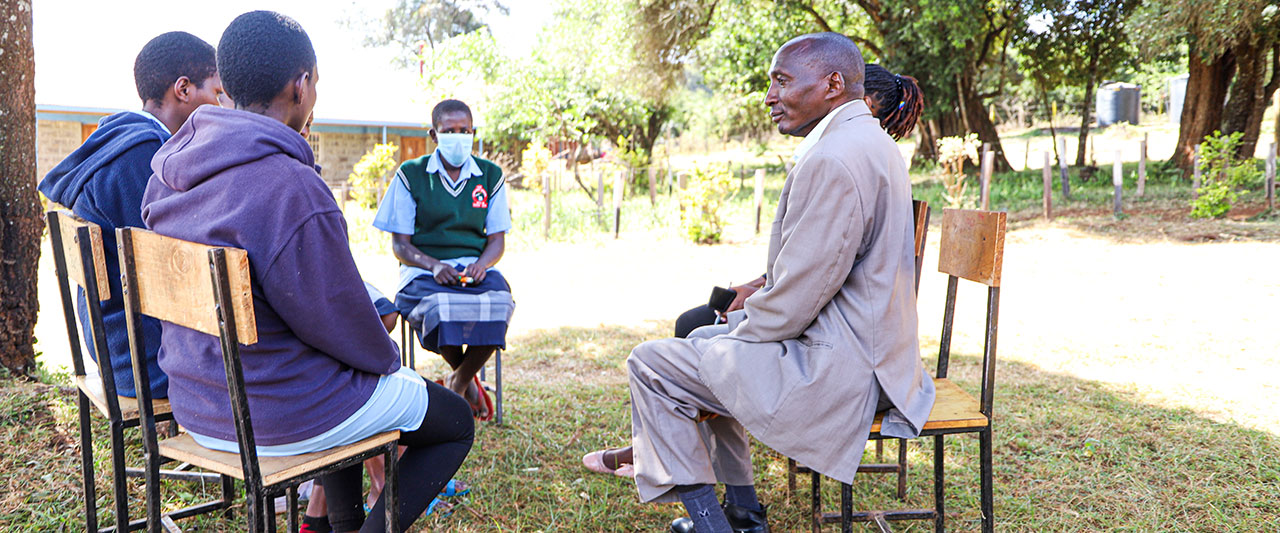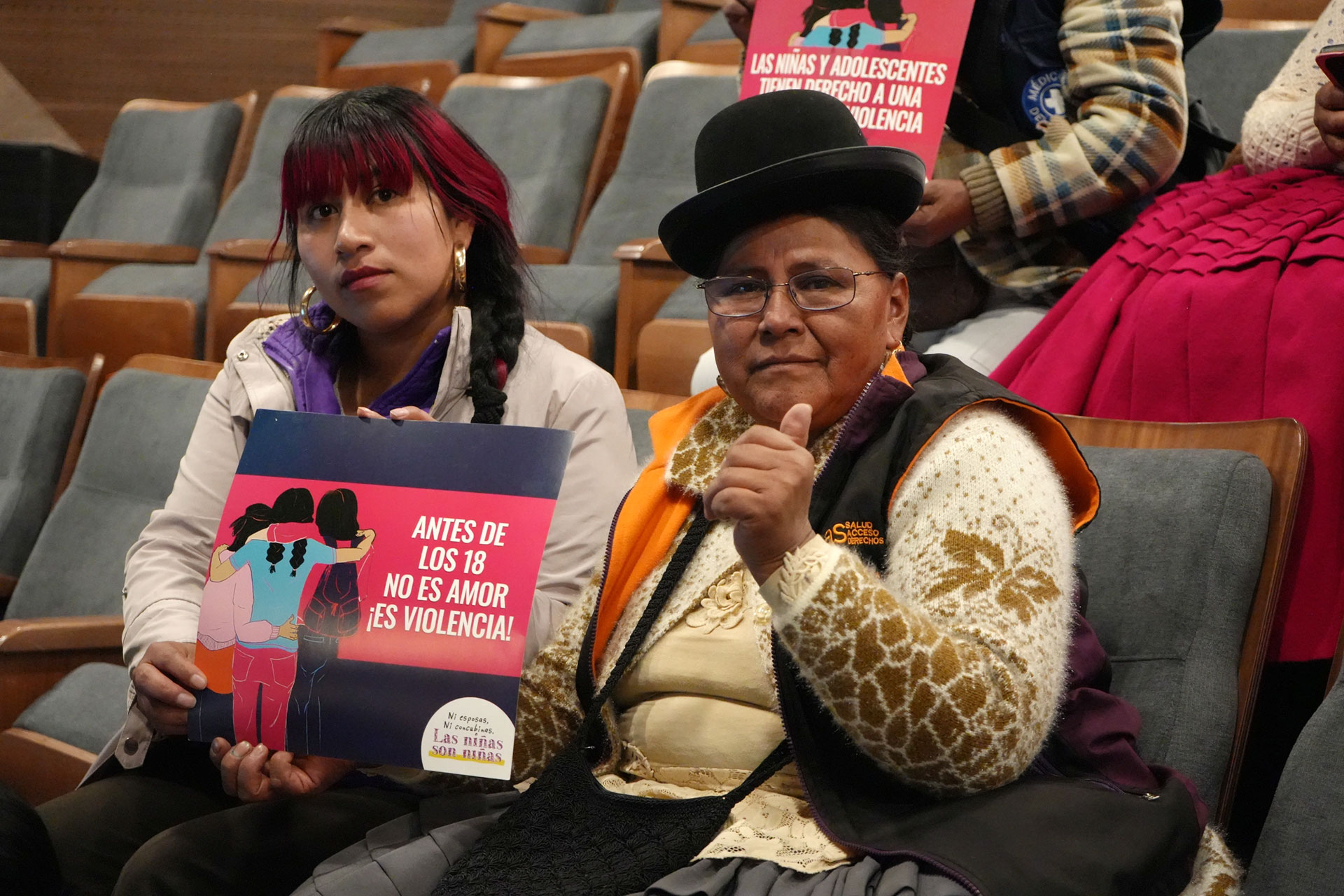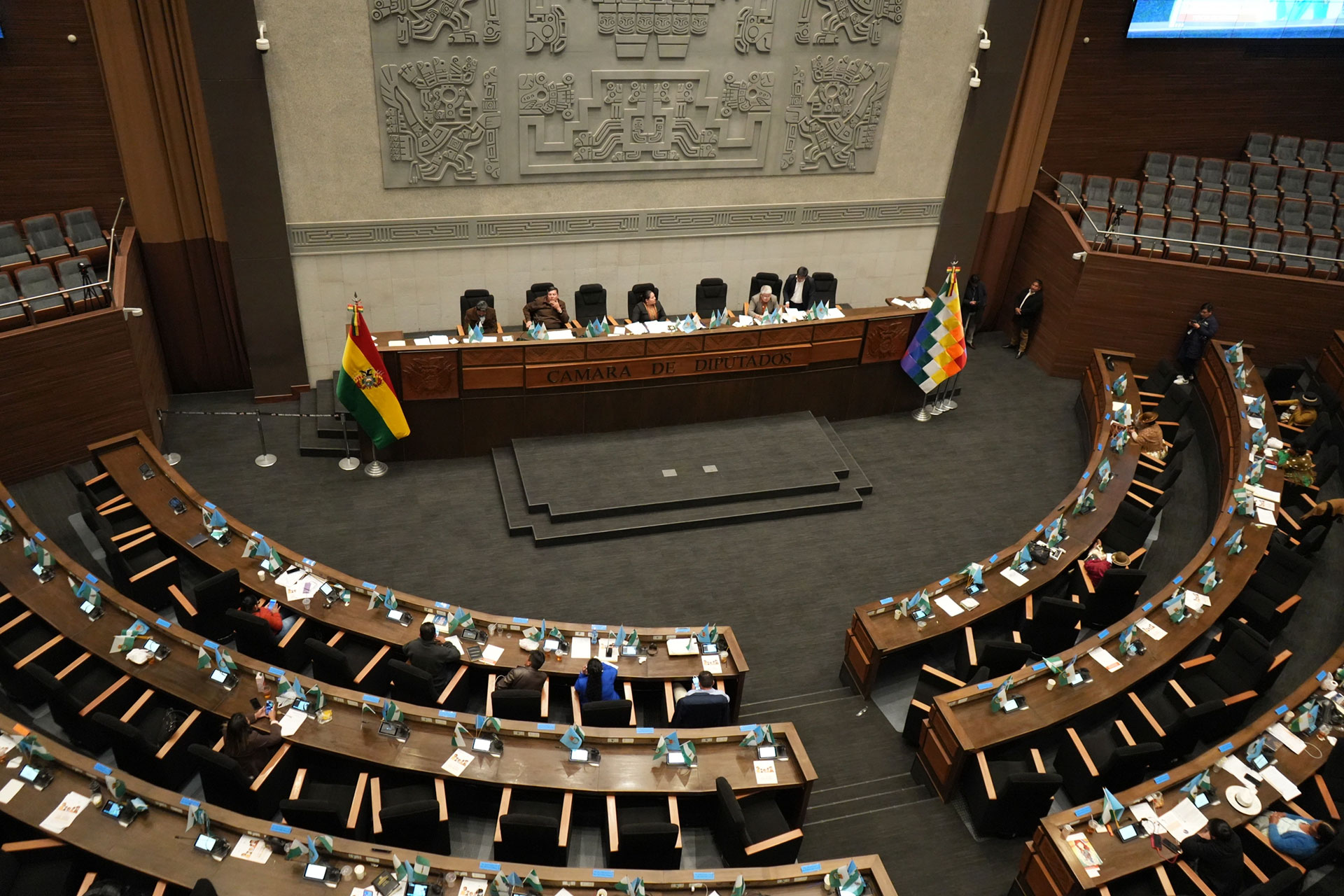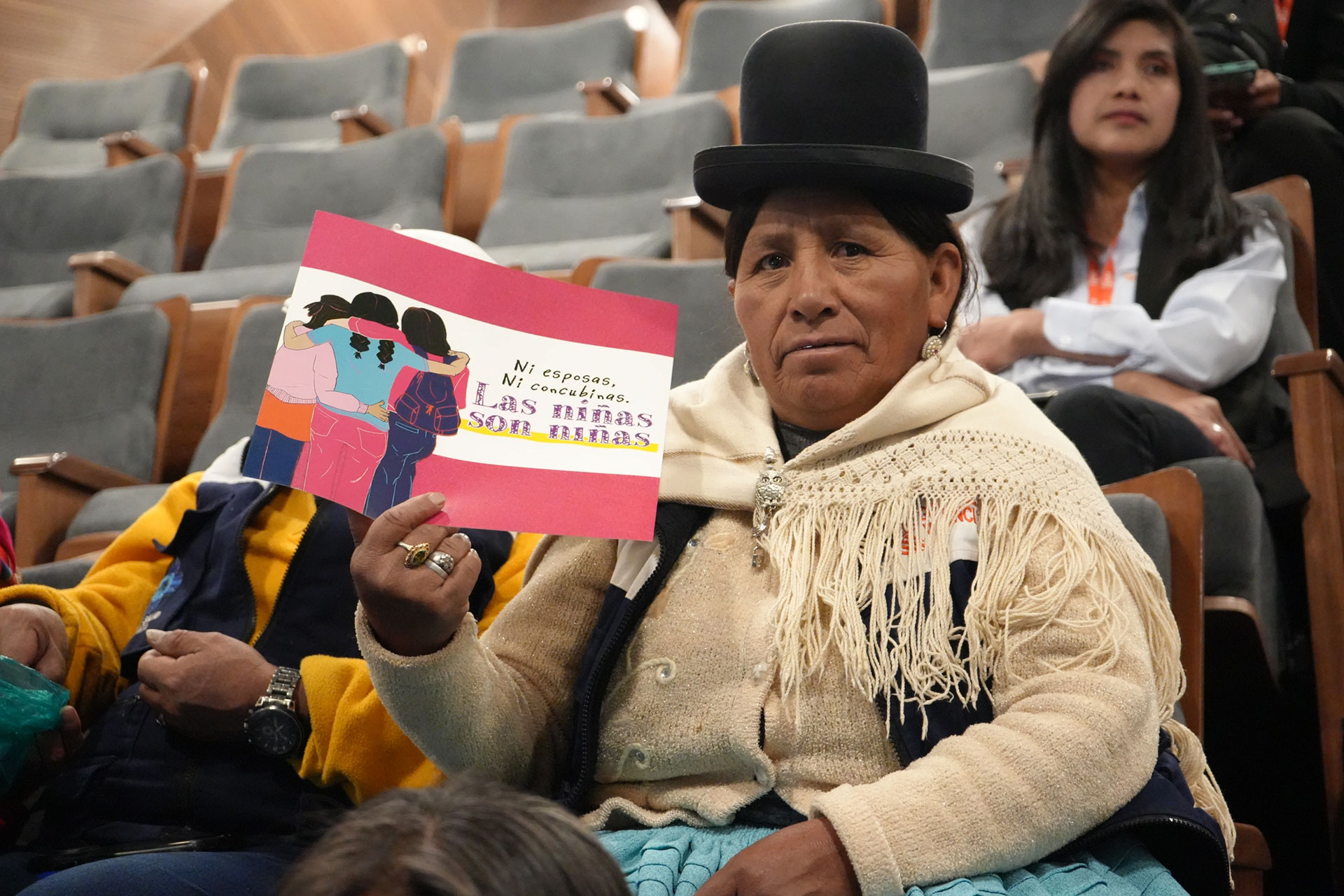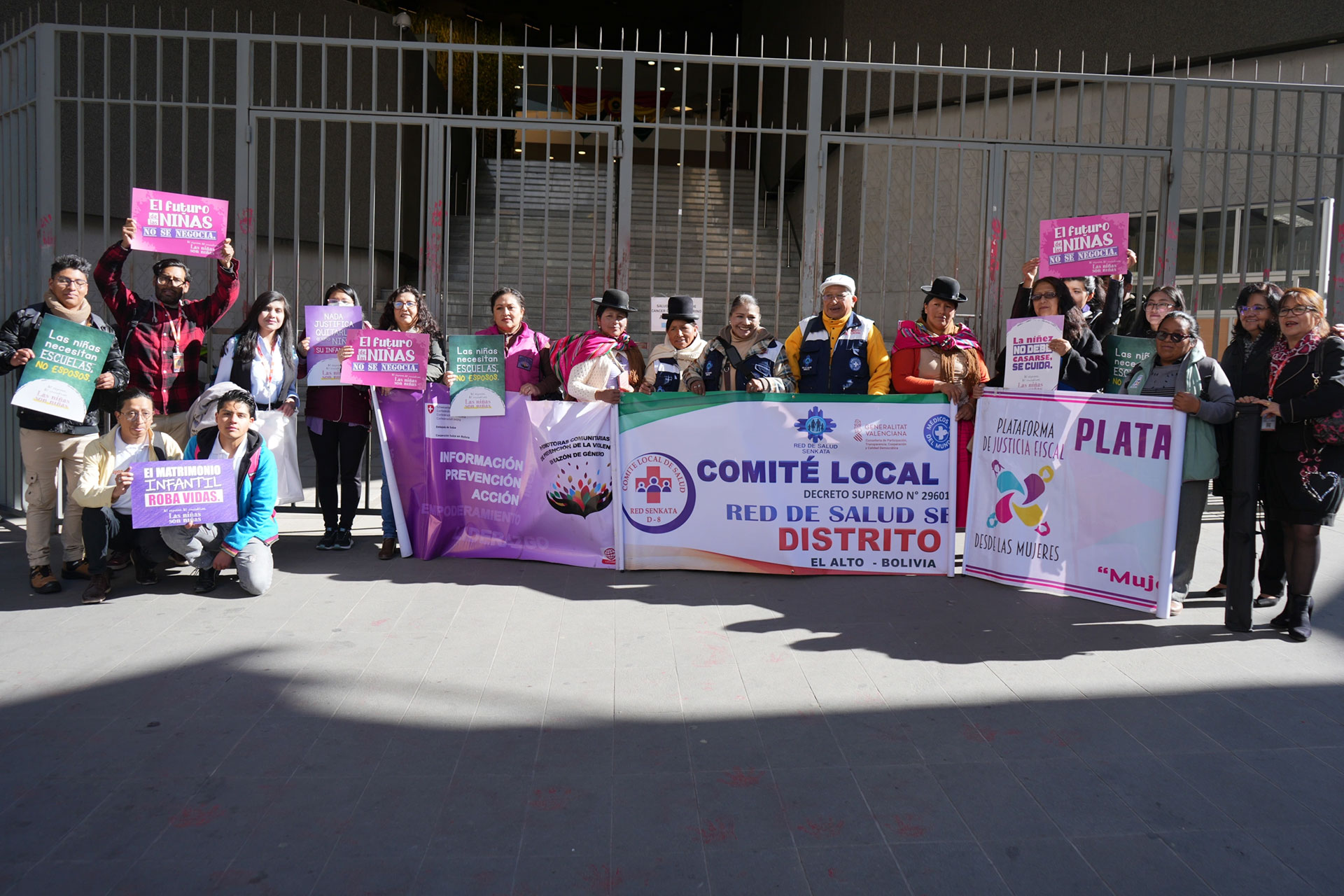A holistic approach to tackling child marriage, teenage pregnancy and school dropout
Girls deserve the right to choose their own path in life. But this right is often denied due to many interrelated factors, including child marriage, teenage pregnancy, and school dropout.
A girl’s path through adolescence can be much easier if her community believes in her rights and has supportive policies and programs in place. While we’ve long worked to help girls prevent pregnancy, we know we can’t address this challenge in isolation—or without our vast network of local partners.
That’s why we use a holistic approach to make lasting, systemic change. We work with partners across all sectors of society to build a world where every girl can control her own body and future.
Girls are resilient
READ THEIR STORIESOur strategy
To address the complex realities girls face, Ipas centers the voices of young people, who serve as leaders and active participants in all our programs to strengthen youth sexual and reproductive health. We partner with governments, health providers, community groups and local leaders to assess each community’s specific needs and build specially tailored programs that prevent girls from experiencing child marriage, teenage pregnancy, and school dropout.
Child marriage
Child marriage is a global threat that severely limits girls’ ability to determine their own future, trapping them in poverty and making them vulnerable to gender-based violence. It also increases their risk of early and unwanted pregnancy, leading to more abortions by unsafe methods. And it deprives girls of education and economic opportunities, perpetuating a cycle of gender inequity.
Here are some of the ways we’re tackling child marriage:
Teenage pregnancy
Teenage pregnancy significantly impacts girls’ health, education, and economic prospects. Early pregnancies can pose serious health risks, including from abortion with unsafe methods, and can trap girls in unhealthy relationships. In addition, young mothers are more likely to drop out of school, limiting their future opportunities.
Here are some of the ways we address the root causes of teenage pregnancy:
School dropout
School dropout rates for girls are alarmingly high in many parts of the world, due to factors including poverty, gender-based violence, and teenage pregnancy. Plus, stigma around youth sexuality and abortion often prevents girls from accessing the sexual and reproductive health information and care they need to stay in school. Dropping out of school has long-term consequences, perpetuating cycles of poverty and preventing girls from reaching their full potential.
Her are some of the ways we work to keep girls in school:
Explore the stories and people behind our work to ensure girls’ futures
Young people are powerful.
That’s why Ipas taps into the knowledge and networks of youth-led groups closest to the challenges young people face. In Malawi, Chimwemwe Chatseka leads a youth network that combats child marriage, teenage pregnancy and school dropout. He’s pictured below with Estelle, who received support from the network and returned to school after dropping out due to marriage and pregnancy.
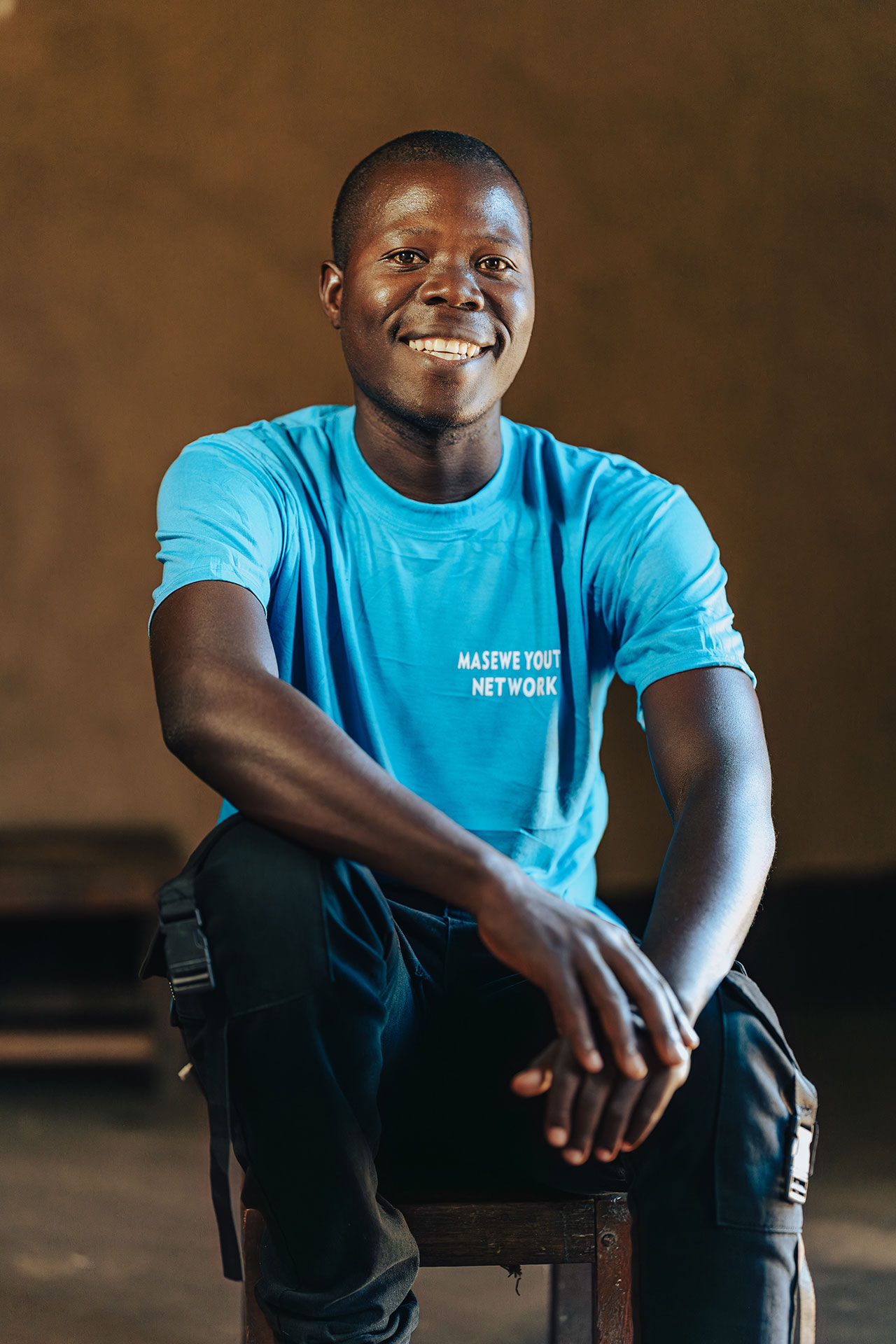
“As the youth, we are the leaders of today, not tomorrow. We disbanded nine child marriages in this area to date, and [the girls] have resumed their studies.”
Chimwemwe Chatseka,
chairperson of Massarif Youth Network in Malawi
Photo by Kondwani Jere
Pictured below: Estelle, age 25, lives in rural Malawi with her seven-year-old son and runs a pastry business. Youth officers like Chimwemwe once helped her to return to school, and she is now the vice secretary of the Massarif Youth Network. [Photo by Kondwani Jere]
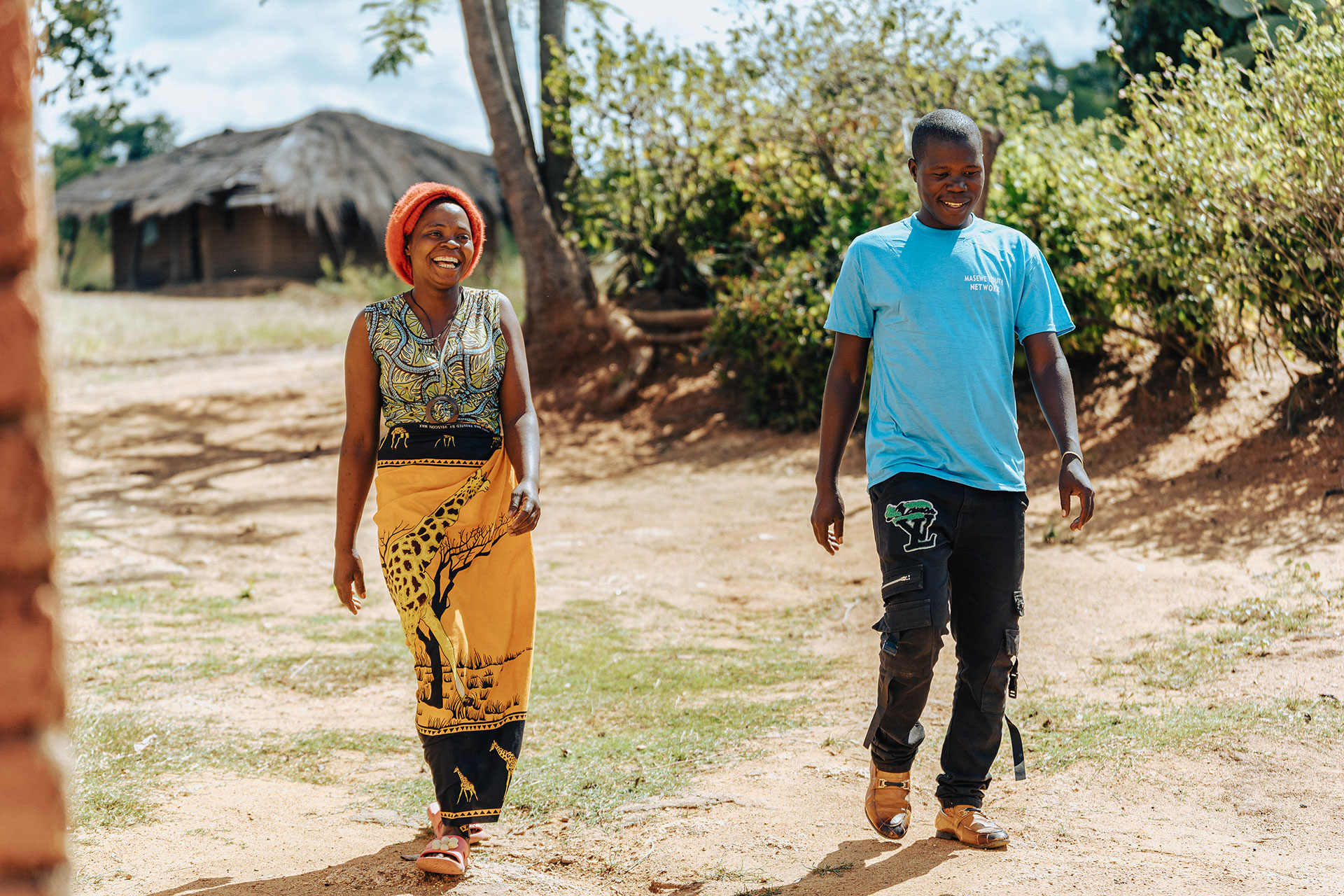
Sexual education helps girls stay in school.
When girls can make informed choices about their own bodies, they’re better able to avoid unwanted pregnancy and stay focused on their education. In Bolivia, Ipas partners with schools to train teachers on preventing gender-based violence and what to do if a child experiences violence. The teachers in turn train students and parents.
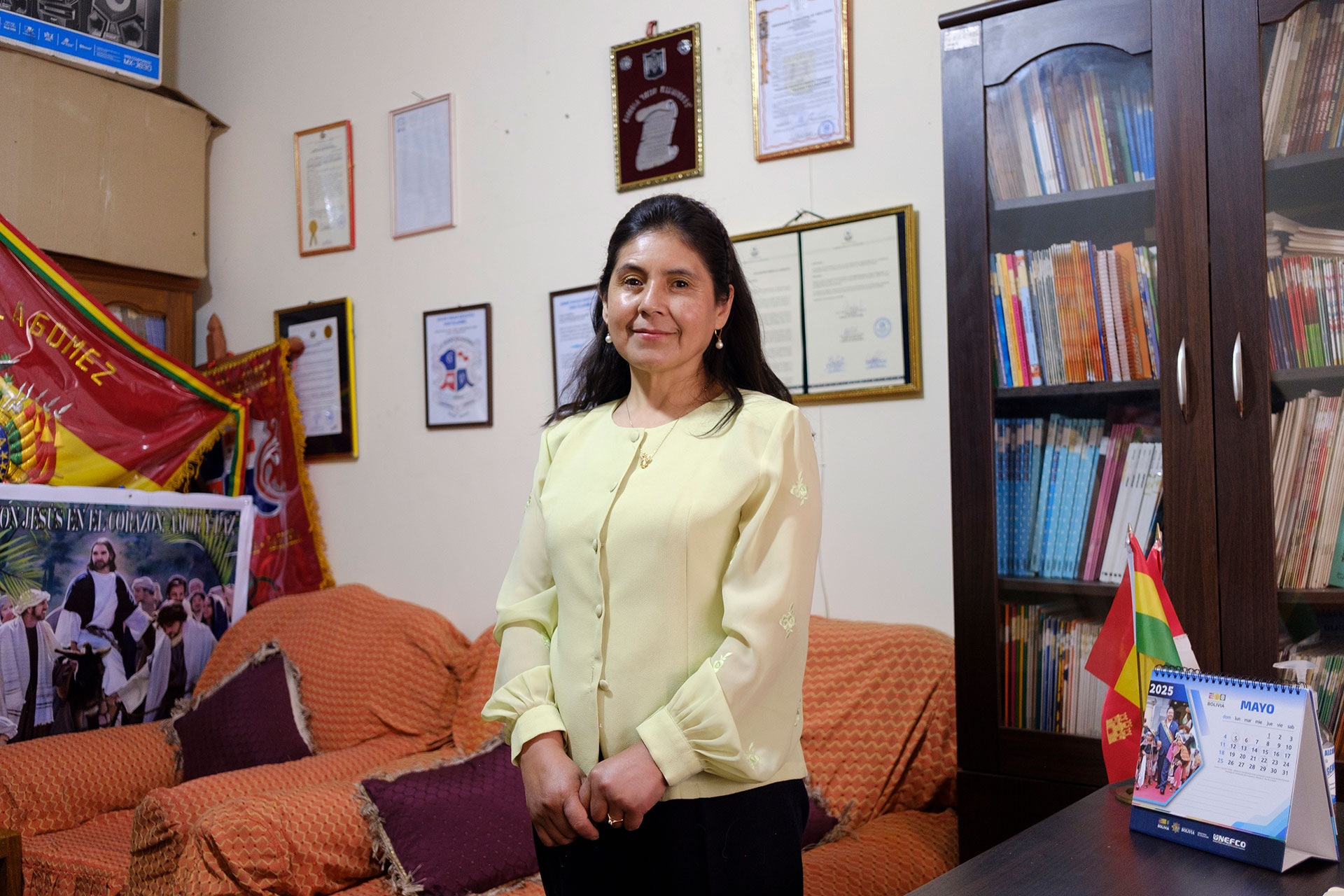
“This kind of education is preventive and comprehensive. Ipas’s training focuses on mental health and emotional intelligence. Ipas has been a blessing in this aspect.”
Elizabeth Phillips,
school director, Potosí, Bolivia
Photo by Manuel Seoane
Our local partners are experts on their communities’ needs.
Everywhere we work, our local partners are key to fulfilling our mission. In Indonesia, we partnered with the Central Sulawesi Women’s Equality Struggle Group (KPKPST), who identified that the climate crisis was disrupting people’s livelihoods, in turn putting girls at higher risk for gender-based violence and child marriage.
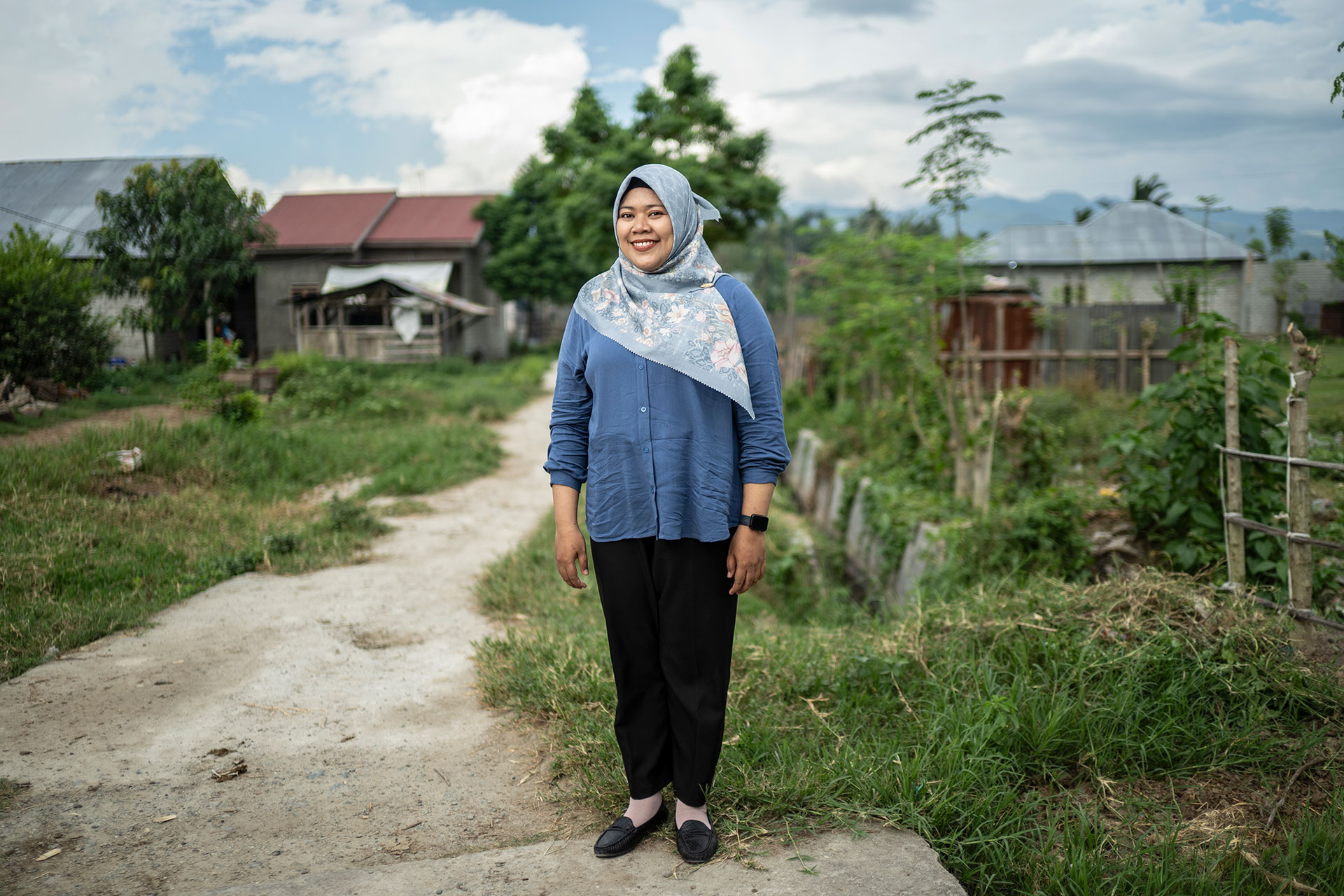
“There’s been progress ever since Ipas joined us in 2022 in Central Sulawesi. With their help, we conduct community meetings and training sessions about climate change, reproductive health, and the relationship between the two, which includes gender-based violence.”
Susilawati,
staff of Ipas’s partner KPKPST in Indonesia
Photo by Rosa Panggabean
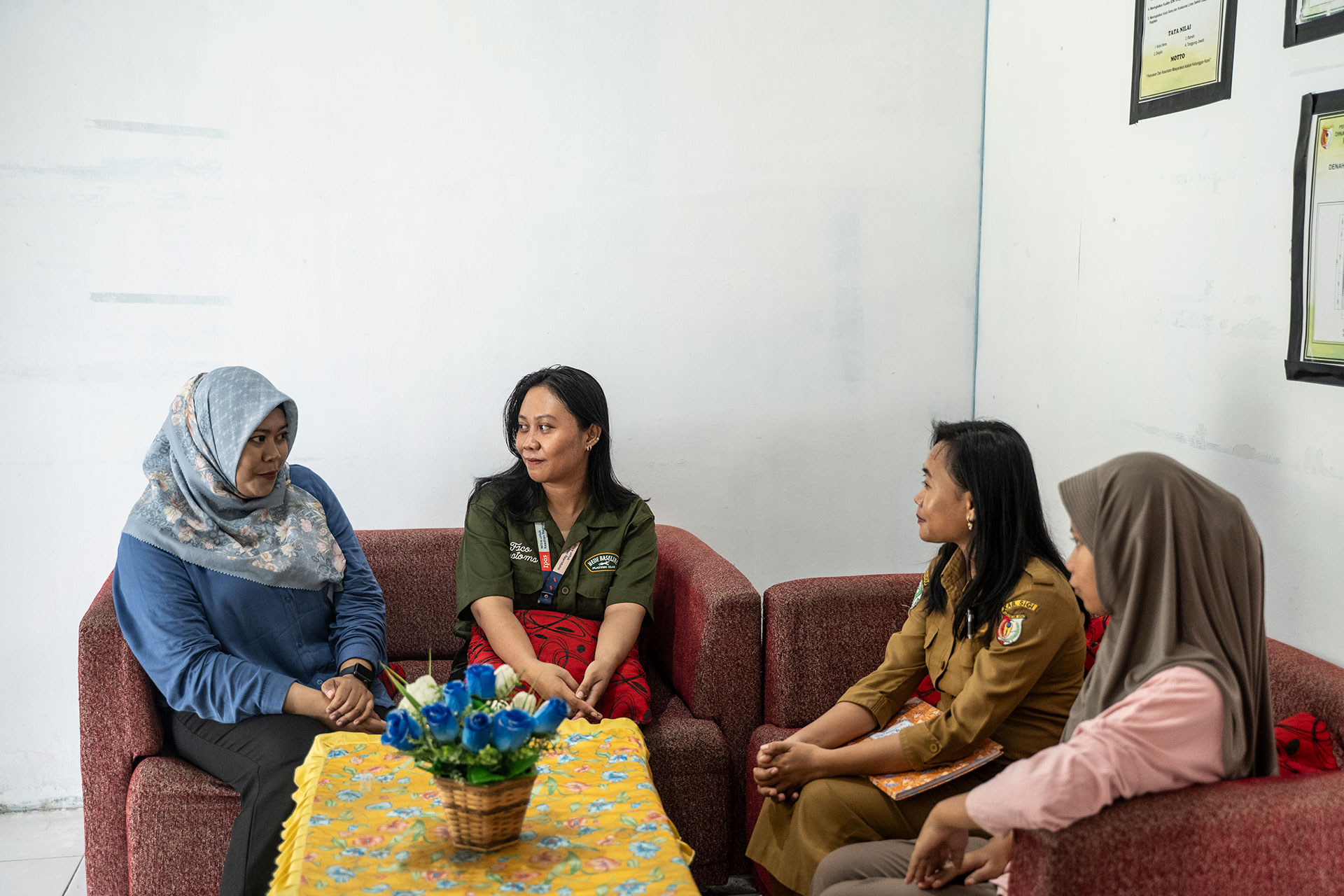
In Sigi Regency, Indonesia, regular meetings between Ipas staff, our local partner KPKPST, and Ipas-trained midwives provide an opportunity to develop strategies that address and reduce child marriage. Left to right: Susilawati, staff of Central Sulawesi Women’s Equality Struggle Group (KPKPST), Athirah Winarsih, staff of Ipas Indonesia; Tabah Suanti, Ipas-trained midwife; and Nur Aini, a young mother who was married at age 14 and received care from Tabah Suanti. [Photo by Rosa Panggabean]
Girls deserve respectful health care.
That’s why we train doctors, midwives and nurses to respectfully care for girls who experience pregnancy, gender-based violence and child marriage. Tabah Suanti, a midwife in Indonesia, received Ipas training and works to educate young women on the risks of early marriage.
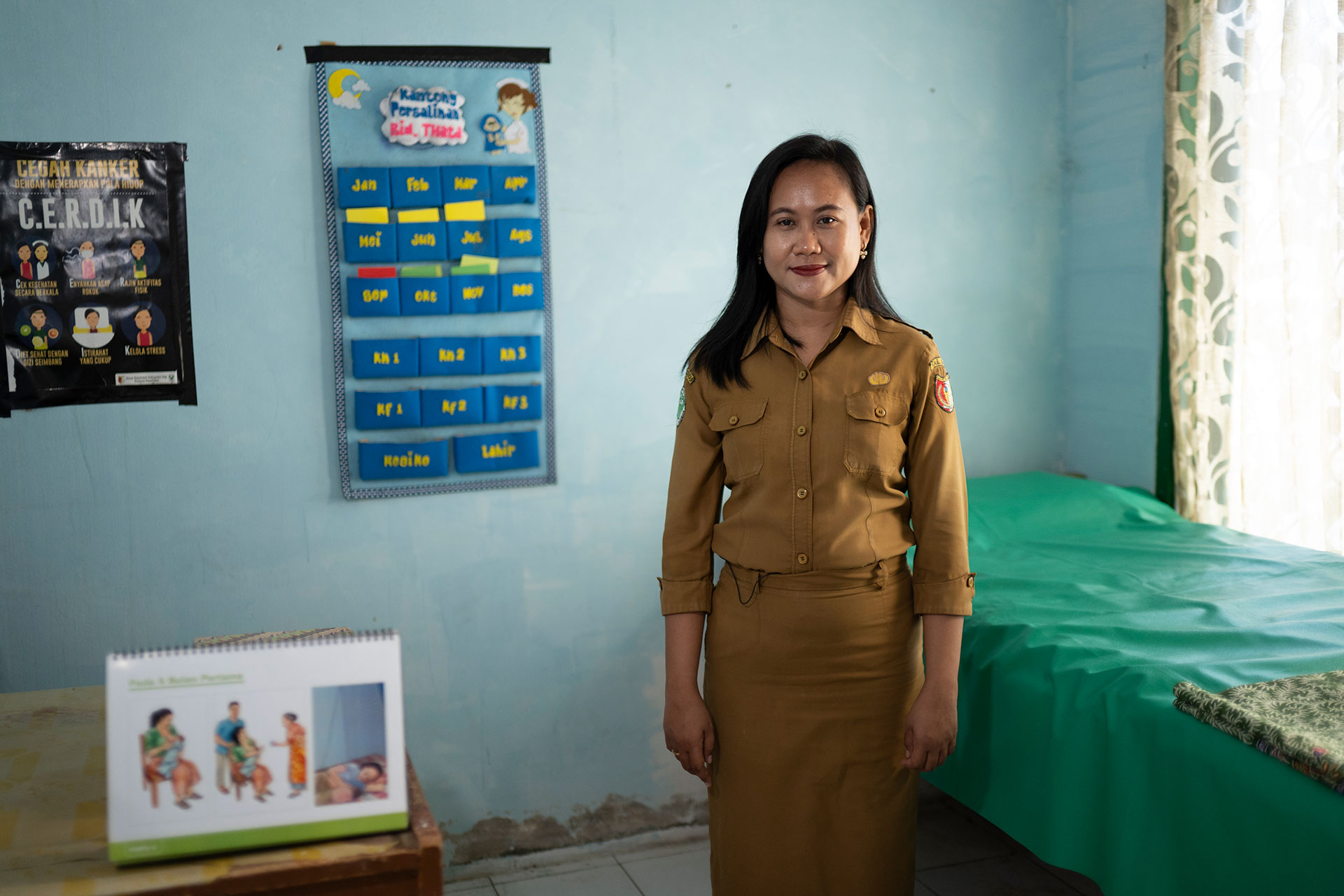
“The Ipas training changed how we serve our community, as they taught us to be nonjudgmental when counselling pregnant teenage girls. This ensures they feel supported and not shamed. We are actively working to break the cycle of early pregnancy and underage marriage.”
Tabah Suanti,
Ipas-trained midwife, Indonesia
Photo by Rosa Panggabean
Laws must protect girls’ right to bodily autonomy.
Ipas works closely with governments and local partners to raise awareness and advocate for laws and policies that advance young people’s bodily autonomy. In Bolivia, we worked at the local level in Cobija municipality to promote a bill advancing sexual and reproductive rights. And at the national level, years of advocacy alongside partners led to a historic vote to ban child marriage across the country.
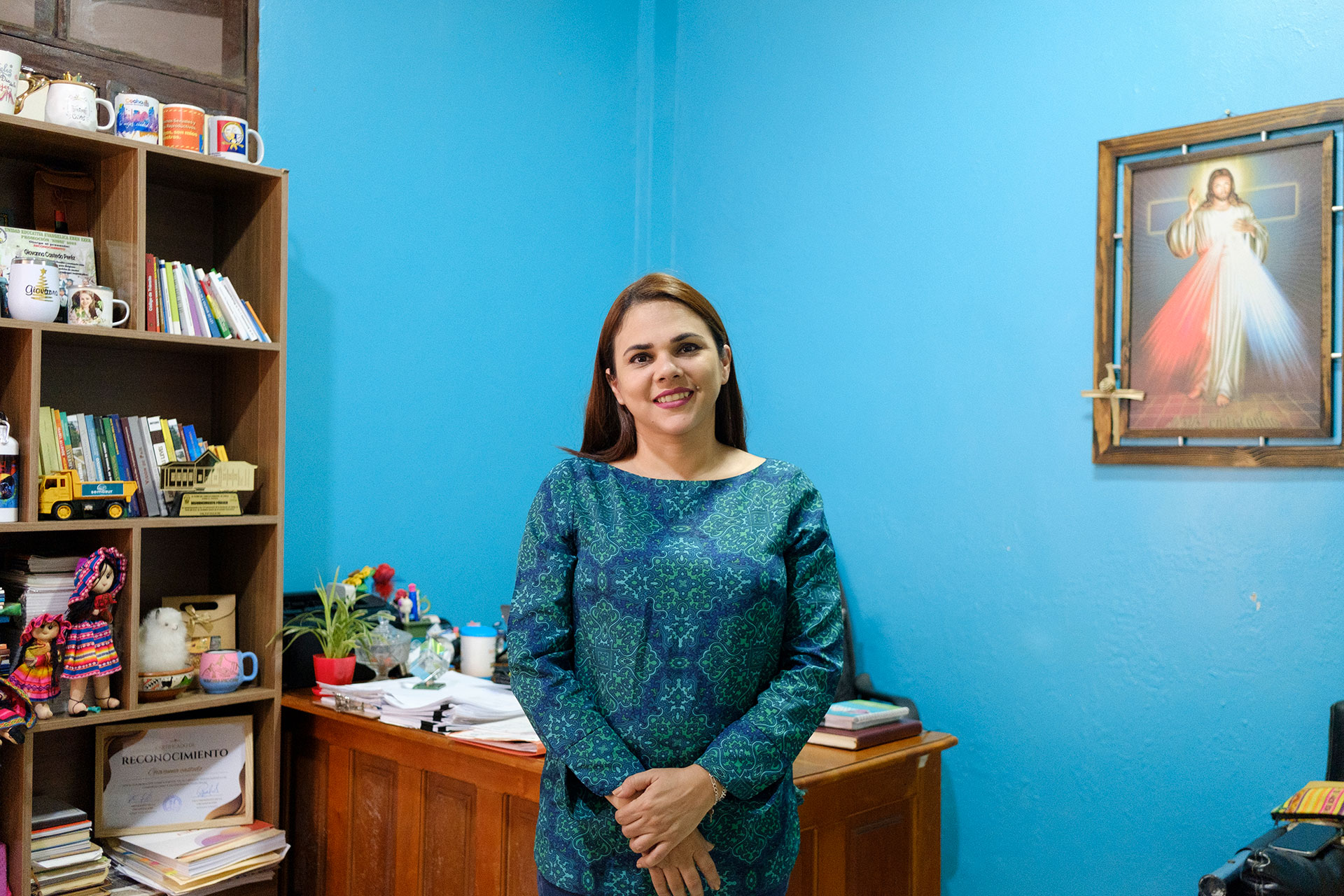
“Ipas’s work is comprehensive because they are working with adolescent girls, parents, physicians, and everything involving the communities that helps us.”
Giovanna Castedo,
municipal councilor, Pando, Bolivia
Photo by Manuel Seoane
Bolivia takes historic step to ban child marriage
In September 2025, the Bolivian government approved the Law Against Child Marriage and Early Unions, officially prohibiting all marriages under the age of 18.
Senator Virginia Velasco spearheaded the push to change the law, with technical support from Ipas Bolivia and human rights organizations. This success builds on years of advocacy by Ipas and partners to end child marriage, which is disturbingly common in Bolivia. In 2024, Ipas testimony at a hearing of the Inter-American Commission on Human Rights prompted the Bolivian government to commit to take action to address the country’s child marriage crisis.
– Malena Morales, director of Ipas Bolivia
Photo by Manuel Seoane
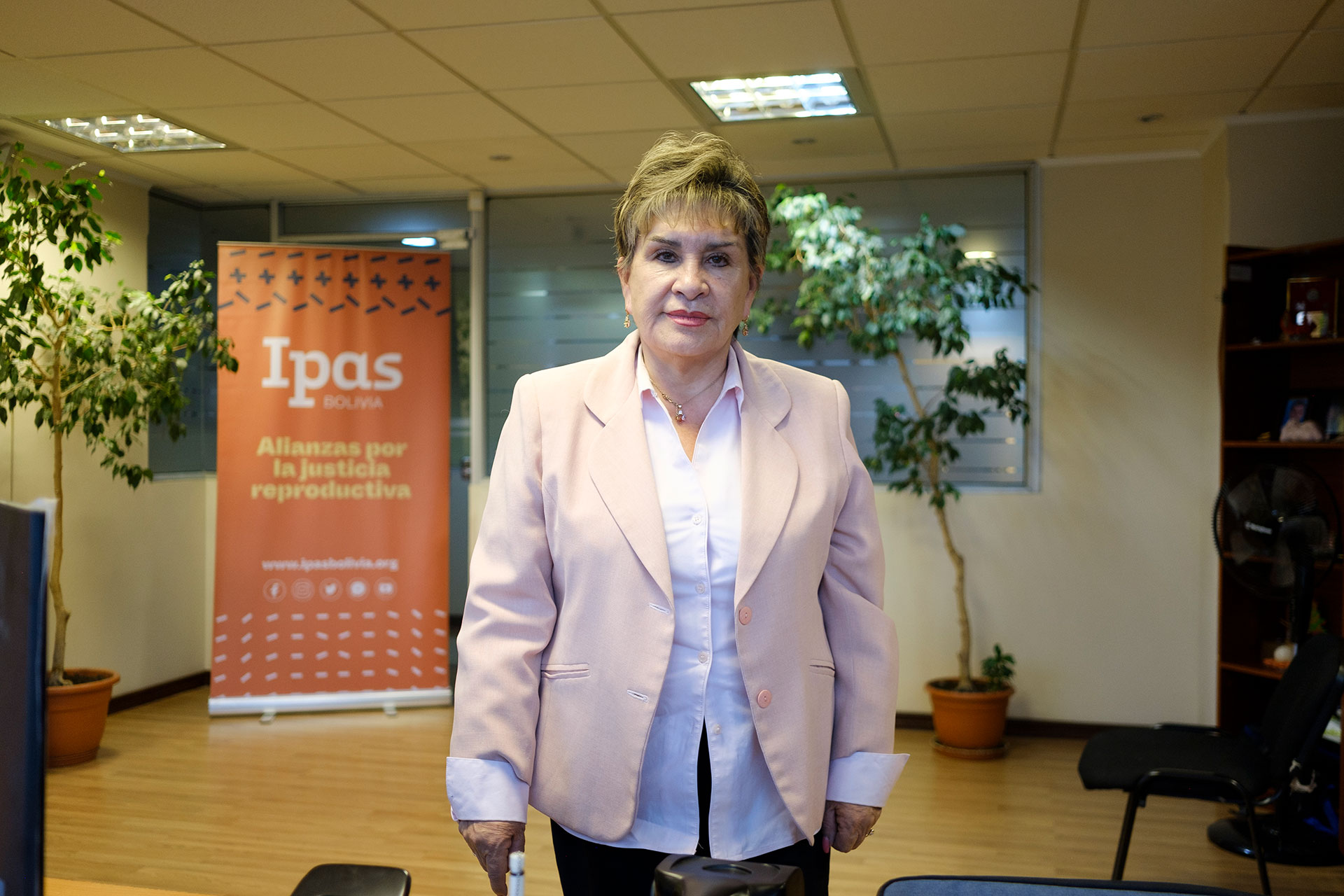
We have a job to do. Will you join us?
Young people and their local communities already know what’s needed to fight the injustices of child marriage, teenage pregnancy and school dropout. With our holistic approach and vast network of local partners and experts, Ipas is uniquely positioned to help make lasting, systemic change.
With your support, we’ll build a world where every girl can control her own body and future.


